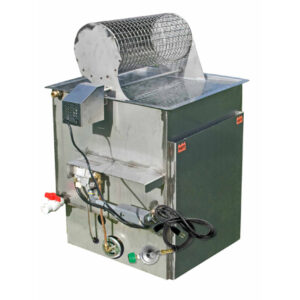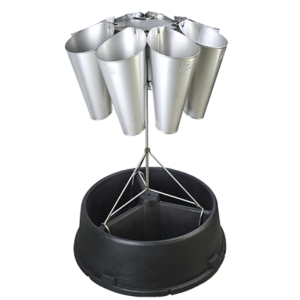Mobile Poultry Processing Unit
go.ncsu.edu/readext?992154
en Español / em Português
El inglés es el idioma de control de esta página. En la medida en que haya algún conflicto entre la traducción al inglés y la traducción, el inglés prevalece.
Al hacer clic en el enlace de traducción se activa un servicio de traducción gratuito para convertir la página al español. Al igual que con cualquier traducción por Internet, la conversión no es sensible al contexto y puede que no traduzca el texto en su significado original. NC State Extension no garantiza la exactitud del texto traducido. Por favor, tenga en cuenta que algunas aplicaciones y/o servicios pueden no funcionar como se espera cuando se traducen.
Português
Inglês é o idioma de controle desta página. Na medida que haja algum conflito entre o texto original em Inglês e a tradução, o Inglês prevalece.
Ao clicar no link de tradução, um serviço gratuito de tradução será ativado para converter a página para o Português. Como em qualquer tradução pela internet, a conversão não é sensivel ao contexto e pode não ocorrer a tradução para o significado orginal. O serviço de Extensão da Carolina do Norte (NC State Extension) não garante a exatidão do texto traduzido. Por favor, observe que algumas funções ou serviços podem não funcionar como esperado após a tradução.
English
English is the controlling language of this page. To the extent there is any conflict between the English text and the translation, English controls.
Clicking on the translation link activates a free translation service to convert the page to Spanish. As with any Internet translation, the conversion is not context-sensitive and may not translate the text to its original meaning. NC State Extension does not guarantee the accuracy of the translated text. Please note that some applications and/or services may not function as expected when translated.
Collapse ▲There are multiple Mobile Processing Units available for rental in NC. Watauga County may not be the closest MPU for you. The NC Department of Agriculture maintains a list of MPUs for rent across the state.
All renters must attend a N.C. Cooperative Extension organized processing training prior to renting the unit for the first time. The next training will be held in July 2025. If you would like to be notified when the training is scheduled, email Kendra at kendra_phipps@ncsu.edu.
Available dates can be viewed at go.ncsu.edu/watmpucalendar. Reservation requests can be submitted online.
Users that have failed to cancel a reservation, or failed to pick up the unit when reserved without communicating with the Extension office in the past 12 months will be required to submit a $25 deposit to hold future reservations.
On this page, you will find helpful information about the mobile processing unit and the rental process.
Rental fees are $50.00 for rentals up to 3 days. The unit is available for rental to anyone who has completed the training course on a first come, first serve basis. It is NOT only available to Watauga County Residents; however, the office reserves the right to direct producers to MPUs located closer to them.
If you have any questions, please email kendra_phipps@ncsu.edu
What’s included?
- Large Poultry Cones – 8
- Kill Cone stand and base – 1
- Featherman scalder with roto-dunker – 1
- Featherman PRO plucker – 1
- Stainless Steel Table – 1
- Additional Stainless Steel Table – 1
- NSF Certified Water Hose (50 ft) – 1
- 20 gallon trashcan – 1
- Long handled cleaning brush – 2
- Trailer lock and key – 1
- Pad lock and key – 1
- Heat resistant gloves – 1 pair
- Trailer brake light adapter – 1
Renters will need to supply their own propane tank for the scalder. 20 pound propane tanks are compatible.
Equipment Manuals and Troubleshooting
Other helpful tips
- Process in a sloped area to assist in drainage
- Set equipment left to right (kill cones/stand then scalder then plucker then evisceration tables)
- Process near a power source to prevent excessive use of drop cords
- Scalder temperature should not be greater than 145F before processing begins — having a thermometer handy to monitor this is helpful. The scalder water will gradually cool to an appropriate 130F as birds are scalded.
- Use mineral oil or non-stick cooking spray to coat the kill cones and stand prior to processing for easier clean up
- Stick lighters are useful for lighting the scalder
- Laundry baskets, milk crates, or anything similar is useful for catching feathers from the plucker
- At least two hoses will be needed during processing — one for the plucker and one for the evisceration station






